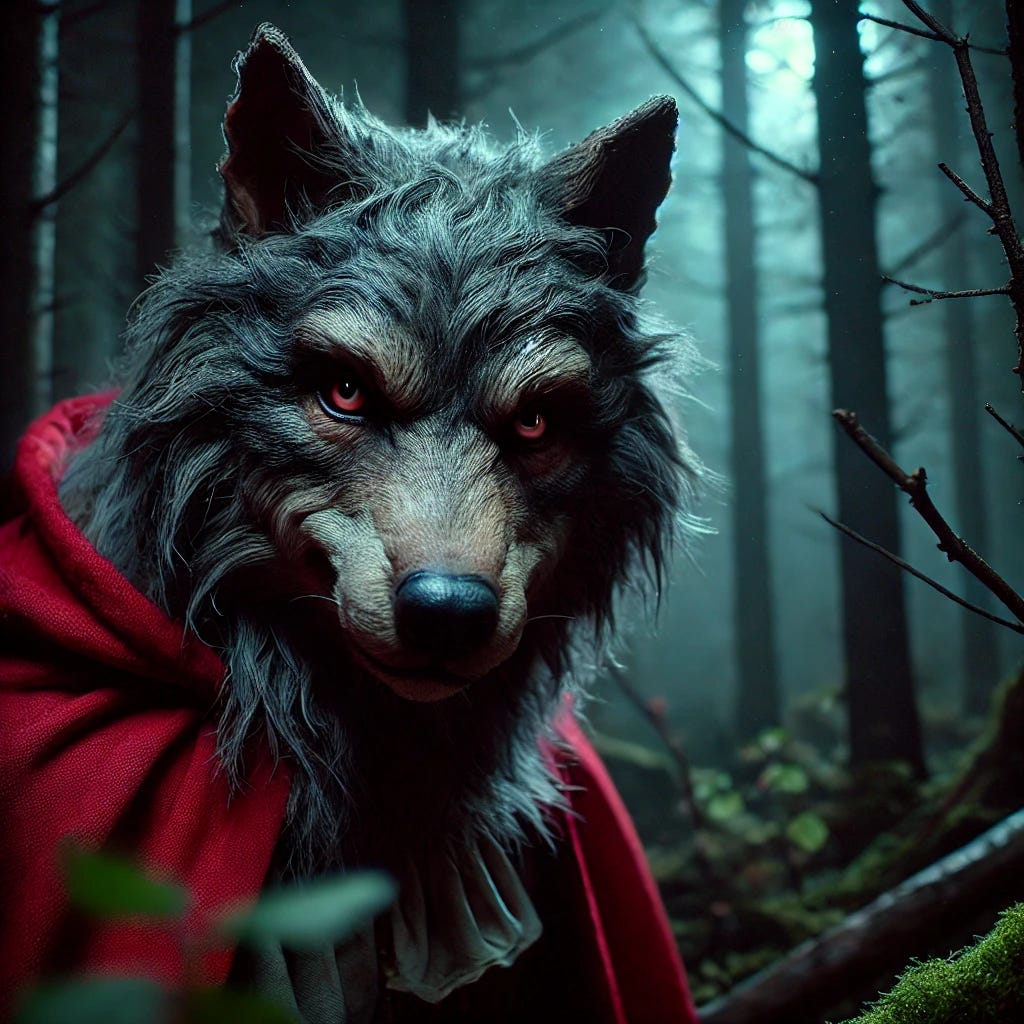I Met A Young Female P*d*phile
The Weirdest Day of My Life
The following is a journalistic extract from my book The Psychology of Secrets. Please bear in mind that the full story comes as part of a wider context about secrecy. This chapter features my pursuit of the darkest secret I could imagine.
It involves a young female paedophile I met. She tells me she has never touched a child and never would.
Let me be clear:
ANY sexual touch between adult and child is rape and abuse. In my experience, children who suffer never truly get over it. It is the single worst atrocity that continues to take place every day at alarming rates. And prison sentences are ridiculously short for these criminals.
Nothing in the following lines is intended to mitigate or lesson the seriousness of the worst crime in the world. It is merely a Louis Theroux type of journalistic investigation into a rare and scary world.
I didn’t feel like I could truly grasp the power of secrecy until I’d seen it at its darkest.
I wanted to get an idea of what it felt like to keep the most burdensome secret imaginable. From what I’d learned in my secrecy research, the worst secret in the world – the one that would affect its holders most egregiously – needed to be tied up in its keeper’s identity.
Rather than simply following orders, it had to be something that defined them as a person, but couldn’t be shown to the world. It’d be even worse if the holder had low self-esteem, and worried that releasing their secret could get them ostracised or perhaps killed.
I was on a mission to find a secret that could cause societal stigma, lose its possessor their friends and family, and provoke wild and feverish rumination and mind wandering.
My pursuit took me to a tiny village in northern Germany. It made for the strangest and most disturbing day of my life. I will just warn the reader now that – as you might expect from the darkest secret imaginable – what follows makes for difficult reading.
Some secrets are better left unknown.
*
‘I have to tell you something,’ says Ruby, her voice quivering. ‘I don’t like men.’
‘Oh,’ says her mother, a devout Lutheran from a German hamlet. She pauses; her disappointment palpable. ‘Don’t tell me you like women.’
This isn’t going to be easy.
Ruby takes a breath, readying herself to utter the words that will confirm her as a freak of nature to her mother.
‘Um…no,’ she says. ‘Actually, little boys.’
Her mother narrows her eyes.
‘Very little boys.’
Horrified by her own desires, Ruby is a non-offending paedophile.
For many of her 25 years, she has lived a sad and lonely existence, hidden away in a village in northern Germany. Last year, her isolation was disturbed by love of a most unconventional nature.
Two years her senior and living in the same village, Sirius is a fellow ‘minor-attracted person’ – a clinical title that attempts to distinguish non-offenders with the affliction from paedo-criminals or abusers. They met through an online forum for non-offending paedophiles.
As an attractive young woman, Ruby is an anomaly in a paedophilic world dominated by men. Rarer still is a love between two non-offending paedophiles. For all I know, they are the only couple of their kind in the world.
I’m curious to see how they live with their secret.
Theirs is clearly one they can’t reveal to others unlike them (aside from Ruby’s mother…and now me). I’ve been chatting online with Ruby for more than a year. Her pseudonym comes from the Latin for Little Red Riding Hood. ‘People think I’m the little girl,’ she tells me. ‘But actually, I’m the wolf.’
‘Don’t you mean the other way around?’ I ask. ‘I mean, people who know about your…condition…might think you’re an offender – a wolf – who preys on children. But you’re actually the innocent little girl…right?’
‘Umm…’ she pauses. ‘Yes. I forget which way round it is. I guess I just like the name.’
We stay in touch from afar, both staying vigilant. She worries I might be a paedophile hunter, intent on outing her. And I worry about getting too close to someone with her inclination, orientation or mental illness, as though it were catching. With time, Ruby comes to trust me, and invites me to meet her and Sirius.
I take a train from my base in Berlin to northern Germany, my heart pounding, as I move between fear and curiosity. Paranoia reigns, as the train chugs past wind turbines and reddish-yellow autumnal forests, before a jumble of factories and gabled cottages pull the village into view.
Just as I wonder how I’ll recognise them, they emerge on the platform, looking like high-school emos dressed in black hoodies and loose jeans. Sirius is 27, and has bright blue eyes and thinning slicked-back hair. Ruby has a round face and red cheeks curtained by blonde locks.
I’m checking to see if there is a physical manifestation of their condition. Before me on the platform, they stand petrified and mute. They shake, looking this way and that, as I approach them.
Ruby begins to sob uncontrollably right there on the platform. I’m aghast. Sirius can’t meet my gaze, and kicks the floor. I feel the weight of being privy to such a dark secret; one that could get them not just ostracised but killed. I feel the burden of the secret of others.
It’s one thing to read about paedophiles online, and see them as statistics (1% of men, for example). But to see these young, confused human beings in front of my eyes – and to find myself feeling like a co-conspirator – is all too real and daunting.
We sit tentatively in a café making cheerful chit-chat with a waitress who may not be so amiable, if she knew what our meeting was about. Ruby and Sirius each take long toilet breaks, leaving me in painful silence with the other. I wonder if they have gone to vomit, because they come back looking even paler and gaunter than before.
Their visceral pain is not just about the strain of keeping the secret, but also the fear of what letting it out to this strange British journalist might do to their status, security and survival. Having confessed their horrible secret to me – but not to others – they’re now living with both the burden of the secret and the fear of the ramifications of having confessed to me.
Later, we walk together through a park. They begin to trust me and open up about their Age of Attractions (AOAs) – the age of child that they are attracted to. They insist they’ll never act on these clandestine desires. AOAs, I learn, are how paedophiles introduce themselves to one another online. In a far darker way, it’s used like ‘Age Sex Location’ was in the chat rooms of the 90s to find common ground.
Out of the many paedophiles I’d considered meeting to find out what it was like to keep the world’s darkest secret, there were two reasons why I chose Sirius and Ruby:
1. It was important to meet with non-offenders. I didn’t like the idea of spending an afternoon with somebody who had abused children. I would turn them in to authorities.
Sirius and Ruby were determined that no adult should ever touch a child sexually, nor should they download child sexual abuse material. They were committed to activism online against it, and regularly argued on message boards against proponents of adult-child relations.
Sirius and Ruby spoke of these people with the same contempt that the rest of us do. I imagine that this made it even harder for them to live with their secret.
2. Finding a female paedophile who’ll agree to meet a journalist is rare. It is almost unheard of. I imagined that the stigma of being a paedophile combined with society’s expectations around maternal instincts might make it an even harder secret to keep for Ruby.
Ruby’s AOA is alarming.
She is attracted to…
To continue reading, please subscribe as a paid member, or get a free trial to get to the end of this article. Or get my book, The Psychology of Secrets:
Click here to buy in the US.
Click here to buy in the UK.
Click here to buy in Australia.
Keep reading with a 7-day free trial
Subscribe to Heretics with Andrew Gold to keep reading this post and get 7 days of free access to the full post archives.








